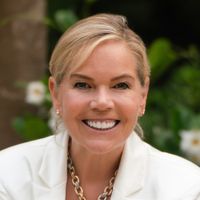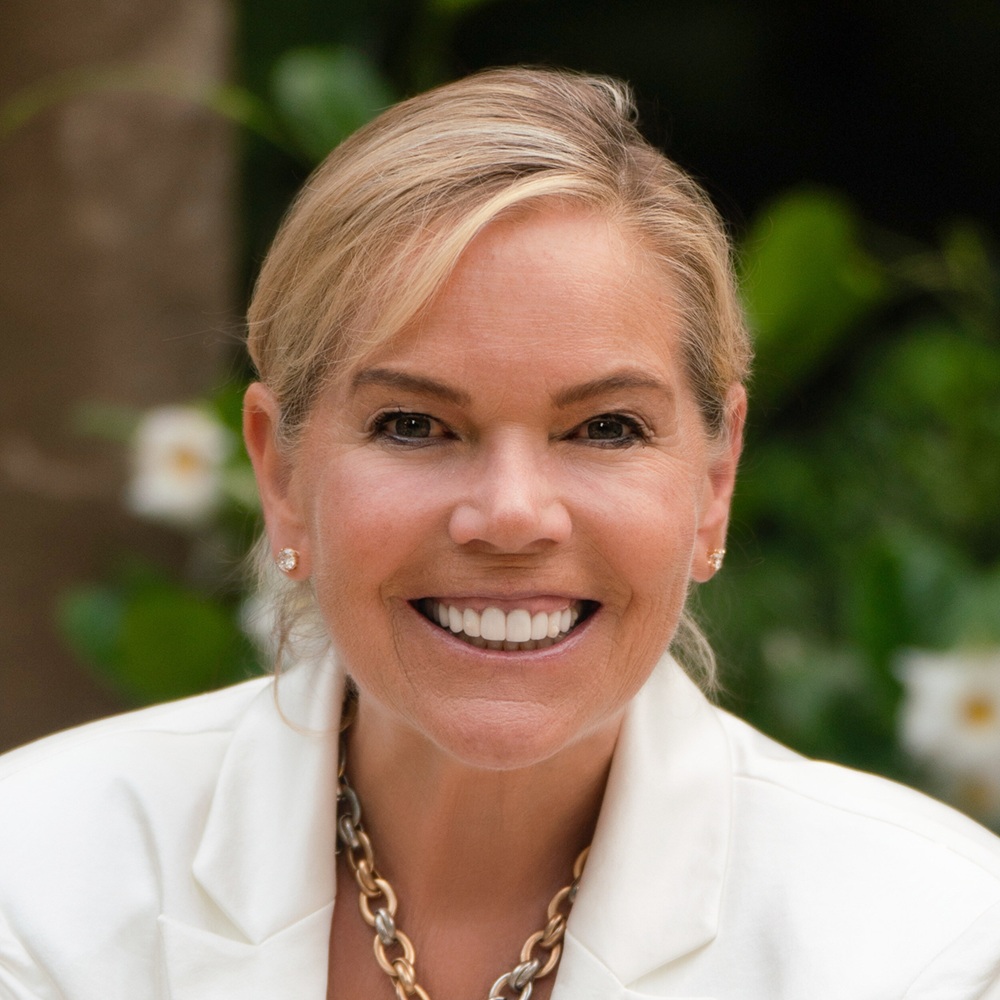I'm a Personal Finance Expert: People Are Asking if Financial Advice Is Worth $8,000
If market turmoil has you worried about your retirement accounts, but getting professional help sounds too expensive, I recommend that you try to look at cost vs value.


Profit and prosper with the best of Kiplinger's advice on investing, taxes, retirement, personal finance and much more. Delivered daily. Enter your email in the box and click Sign Me Up.
You are now subscribed
Your newsletter sign-up was successful
Want to add more newsletters?
The once-steady bull market has become more of a roller coaster, prompting individual investors to reassess their strategies.
Last year, the S&P 500 notched 57 record highs — a historic run. And most Americans were along for the ride. A 2024 Gallup survey found that 62% had money in the market, including through retirement accounts like 401(k)s and IRAs.
But we’re now in a moment of heightened financial tension. Trade and tariff policies have been rattling the global markets. And tensions between the Federal Reserve and the White House are adding to the sense of unease about interest rates.
From just $107.88 $24.99 for Kiplinger Personal Finance
Become a smarter, better informed investor. Subscribe from just $107.88 $24.99, plus get up to 4 Special Issues

Sign up for Kiplinger’s Free Newsletters
Profit and prosper with the best of expert advice on investing, taxes, retirement, personal finance and more - straight to your e-mail.
Profit and prosper with the best of expert advice - straight to your e-mail.
The Kiplinger Building Wealth program handpicks financial advisers and business owners from around the world to share retirement, estate planning and tax strategies to preserve and grow your wealth. These experts, who never pay for inclusion on the site, include professional wealth managers, fiduciary financial planners, CPAs and lawyers. Most of them have certifications including CFP®, ChFC®, IAR, AIF®, CDFA® and more, and their stellar records can be checked through the SEC or FINRA.
Corporate earnings have been rolling in, and some major public companies, including Apple (APPL), Intel (INTC) and Amazon (AMZN), are warning about the impacts of tariffs ahead, further adding to the current market’s volatility.
For people who are still working, all this economic noise can be unsettling. For those in or near retirement, it can feel downright risky.
With markets less stable and inflation looming large, many people who have been confidently managing their own finances are now starting to second-guess their strategy.
More people are asking a very honest question: Is now the time to stop DIY-ing it?
At Wealthramp, I’ve had a front-row seat for this shift. We’ve seen a surge in people asking for intro calls with fiduciary financial advisers, listening to recommendations and exploring the option of engaging with an adviser for the first time.
One recent comment stuck with me:
“While hearing a good plan from a top-notch professional would give peace of mind, we’re trying to decide if peace of mind is worth $8,000 to us right now, while we continue to work. We could go on a really nice trip or buy some nice furniture for that amount of money, and we wouldn’t feel compelled to buy it again in five years like we would need to do with a financial planner after everything changes.”
That sentiment — rational, honest, practical — is exactly what advisers need to hear from prospective clients if they want to answer the value question head on.
Shifting the conversation from cost to value
For fiduciary advisers, the best way to win over DIY investors isn’t by defending fees, it’s by reframing the conversation. Cost is what you pay. Value is what you get. And both sides benefit when expectations are clear.
Because here’s the truth: $8,000 isn’t just a fee. It’s an investment in better decisions, fewer mistakes, more time and less stress. The right adviser can help you save — and grow — your money in ways that far exceed the cost.
What $8,000 really buys you
For someone with $1 million in retirement savings, $8,000 is less than 1% of their assets. And for that amount, you’re not just getting investment management — you’re getting comprehensive and holistic financial planning.
It’s important to be aware that often advisers will charge less than 1% annually for full asset management services, which include ongoing financial planning. And increasingly advisers will offer flexible fee arrangements such as hourly rates, retainer fees and one-time project fees.
Beyond the numbers, you’re gaining a strategic partner who helps you plan, pivot and protect everything you’ve built.
You wouldn’t think twice about spending 1% on taxes, health care or a major home repair if it meant saving time or stress. The same logic applies here.
That fee buys you:
- Preserving your nest egg
- Generating tax-efficient retirement income
- Confidence that your plan supports your lifestyle
Maybe you’re unsure when to claim Social Security, how to approach Roth conversions or manage required minimum distributions (RMDs) or when to shift from growth to income mode.
These aren’t one-time events. They require ongoing advice, tailored to your life as it changes.
What if you're already working with a broker?
Some people I talk to have someone managing their investments — usually at a big firm or bank. But often, that relationship is limited to asset allocation and performance updates.
Looking for expert tips to grow and preserve your wealth? Sign up for Building Wealth, our free, twice-weekly newsletter.
Here’s what’s missing:
- Proactive tax planning
- Estate strategy
- Retirement income optimization
- Unbiased help with major decisions like downsizing, gifting to children or exiting a business
So, if you’re comparing a fiduciary adviser to a broker, ask: What services am I not getting now that could have a meaningful impact?
Questions that reveal true value
If you’re interviewing advisers, don’t just ask about performance or fees. Ask:
- How do you make decisions together with your clients?
- Can you share a real example of how you helped someone avoid a costly mistake?
- What does the first year with you look like, and how do things evolve?
It’s about making smarter decisions, not just managing money.
Final thought: Peace of mind isn't a luxury — it's a smart investment
Financial planning isn’t something you “buy again in five years.”
Life moves fast. Your financial situation, goals, health and family dynamics shift more than you think. A fiduciary adviser grows with you. They’re a strategic partner you can call when you’re facing the unknown — and that’s often when their value is clearest.
So, is peace of mind worth $8,000?
If it helps you retire earlier, avoid a six-figure tax mistake or sleep better knowing you have a reliable plan — not just in theory, but in practice — then yes, it’s worth every penny.
Related Content
- Want to Hire a Remote Financial Adviser? What to Consider
- Are Investment Fees Putting Your Retirement at Risk?
- How to Get Your Money's Worth From Your Financial Adviser
- How Her Financial Adviser Changed Her Life
- Five Things I Wish I’d Known Before I Retired
Profit and prosper with the best of Kiplinger's advice on investing, taxes, retirement, personal finance and much more. Delivered daily. Enter your email in the box and click Sign Me Up.

With more than 25 years in investor advocacy, Pam Krueger is the founder and CEO of Wealthramp, an SEC-registered adviser matching platform that connects consumers with rigorously vetted and qualified fee-only financial advisers. She is also the creator and co-host of the award-winning MoneyTrack investor-education TV series, seen nationally on PBS, and Friends Talk Money podcast.
-
 Big Nvidia Numbers Take Down the Nasdaq: Stock Market Today
Big Nvidia Numbers Take Down the Nasdaq: Stock Market TodayMarkets are struggling to make sense of what the AI revolution means across sectors and industries, and up and down the market-cap scale.
-
 How Medicare Advantage Costs Taxpayers — and Retirees
How Medicare Advantage Costs Taxpayers — and RetireesWith private insurers set to receive $1.2 trillion in excess payments by 2036, retirees may soon face a reckoning over costs and coverage.
-
 3 Smart Ways to Spend Your Retirement Tax Refund
3 Smart Ways to Spend Your Retirement Tax RefundRetirement Taxes With the new "senior bonus" hitting bank accounts this tax season, your retirement refund may be higher than usual. Here's how to reinvest those funds for a financially efficient 2026.
-
 3 Smart Ways to Spend Your Retirement Tax Refund
3 Smart Ways to Spend Your Retirement Tax RefundRetirement Taxes With the new "senior bonus" hitting bank accounts this tax season, your retirement refund may be higher than usual. Here's how to reinvest those funds for a financially efficient 2026.
-
 Trump's New Retirement Plan: What You Need to Know
Trump's New Retirement Plan: What You Need to KnowPresident Trump's State of the Union address touched upon several topics, including a new retirement plan for Americans. Here's how it might work.
-
 Buy and Hold … or Buy and Hope? It's Time for a Better Retirement Planning Strategy
Buy and Hold … or Buy and Hope? It's Time for a Better Retirement Planning StrategyOnce you're retired, your focus should shift from maximum growth to strategic preservation and purposeful planning to help safeguard your wealth.
-
 Your Legacy Is More Than Your Money: How to Plan for Values, Not Just Valuables
Your Legacy Is More Than Your Money: How to Plan for Values, Not Just ValuablesLegacy planning integrates your values and stories with legal and tax strategies to ensure your influence benefits loved ones and good causes after you're gone.
-
 4 High-End Experiences Worth the Splurge After 50
4 High-End Experiences Worth the Splurge After 50These curated date ideas provide the perfect backdrop for couples ready to enjoy the very best that the world has to offer.
-
 My Grandkids Want Me to Donate to Their Teams and School Fundraisers. I Adore Them, but I'm on a Budget.
My Grandkids Want Me to Donate to Their Teams and School Fundraisers. I Adore Them, but I'm on a Budget.When your heart says "yes" but your wallet says "no," there is still a way forward. Here's what financial pros say.
-
 Your Retirement Age Is Just a Number: Today's Retirement Goal Is 'Work Optional'
Your Retirement Age Is Just a Number: Today's Retirement Goal Is 'Work Optional'Becoming "work optional" is about control — of your time, your choices and your future. This seven-step guide from a financial planner can help you get there.
-
 It's Time to Bust These 3 Long-Term Care Myths (and Face Some Uncomfortable Truths)
It's Time to Bust These 3 Long-Term Care Myths (and Face Some Uncomfortable Truths)None of us wants to think we'll need long-term care when we get older, but the odds are roughly even that we will. Which is all the more reason to understand the realities of LTC and how to pay for it.